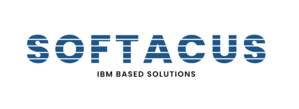There are 4 options for how you can license the server
Virtual server and managed virtual server (Server Agent) licensing
In this scenario, the server and agents require separate licenses. You apply the IBM URBANCODE DEPLOY SERVER AGENT VIRTUAL SERVERlicense to the server and IBM URBANCODE DEPLOY SERVER AGENT MANAGED VIRTUAL SERVER licenses to the agents. If an agent does not have a license, it cannot run processes.
In this scenario, you can either allow the server to assign licenses to agents automatically or you can assign licenses to agents manually. See Applying licenses to servers and agents. The licenses are released when the agents are deleted.
UrbanCode Deploy is configured with a finite number of Server Agent licenses for an organization. When the maximum number of licenses are in use, any additional agents configured will become unlicensed and cannot run processes. Any process run on an unlicensed agent will log an error message. To resolve licensing warnings, additional licenses must be obtained, or existing licenses must be reassigned among the agents.
For this type of licensing, the Server License Type field shows Server Agent.
Concurrent sessions (floating licenses)
In this scenario, the IBM URBANCODE DEPLOY SESSION PER SIMULTANEOUS SESSION LIC license is available to the agents. When an agent runs a process, the IBM UrbanCode Deploy server retrieves a license from a license server. If the first license server does not have available licenses, the IBM UrbanCode Deploy server attempts to retrieve a license from the other license servers. Regardless of whether the process succeeds or fails, 15 minutes after the process is complete, the server returns the license to the license server. The same agent that ran the process can reuse that license immediately; however, the license is not available to any other agent until the 15-minute waiting period, also called linger time, is complete.
In this scenario, the IBM UrbanCode Deploy server does not require a separate license.
Although session-based licensing is provided to accommodate fluctuations in application processing demands, peak processing demands result in more requested licenses than available. In order to avoid interruptions in deployments when a license server or servers run out of licenses, the agent is permitted to run the process and an entry is made in the error log. It is the customer's responsibility to monitor session usage and adjust licensing needs as required.
For this type of licensing, the Server License Type field shows Session.
Processor value unit (PVU) licensing
In this scenario, you apply the IBM URBANCODE DEPLOY MANAGED CAPACITY PVU LIC license to the IBM UrbanCode Deploy server. Then, the server can run processes. In this case, the agents do not require a separate license file; instead, each PVU license allows the server to use some agents concurrently. The number of concurrent agents might be limited or unlimited, depending on the terms of the PVU license. If you are using this licensing scenario and the license server does not have any PVU licenses for an IBM UrbanCode Deploy server, the server cannot run processes.
For this type of licensing, the Server License Type field shows Managed Capacity.
You can track your use of the PVU licenses with the IBM License Metric Tool.
Urbancode PVU licensing is a restricted pricing type. It is available, however, requires approval.
Concurrent sessions (token licenses)
In this scenario, the IBM URBANCODE DEPLOY SESSION INITIAL TOKEN 2 YEAR license is available to the agents. When an agent runs a process, the IBM UrbanCode Deploy server retrieves some token licenses from a license server. If the first license server does not have enough available licenses, the IBM UrbanCode Deploy server attempts to retrieve licenses from the other license servers. Each agent requires twenty-two tokens to run a deployment. 15 minutes after the process is complete, the server returns the licenses to the license server. In this scenario, the server does not require a license.
Although session-based licensing is provided to accommodate fluctuations in application processing demands, peak processing demands result in more requested licenses than available. In order to avoid interruptions in deployments when a license server or servers run out of licenses, the agent is permitted to run the process and an entry is made in the error log. It is the customer's responsibility to monitor session usage and adjust licensing needs as required.
For this type of licensing, the Server License Type field shows Session.
Urbancode Token licensing is a restricted pricing type. It is available, however, requires approval.








